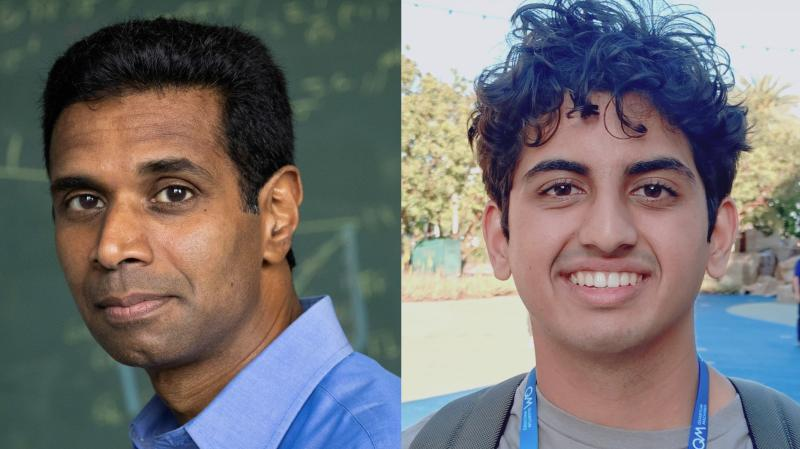The ongoing research funding crisis has put a significant strain on institutions across the United States, impacting groundbreaking initiatives like those at Harvard University. Following federal funding cuts, many researchers are scrambling to retain their projects and talented staff, particularly in innovative fields such as organ-on-a-chip technology. Don Ingber, a prominent figure at the Wyss Institute, has found himself at the forefront of this turmoil as he navigates the complexities of halted projects worth millions. As the landscape of science and technology in academia shifts, the potential consequences of this crisis threaten not only individual careers but also the broader innovation ecosystem that has historically driven American progress. The alarm bells are ringing, and without adequate research funding, the future of pioneering advancements in health and science hangs in the balance.
Amidst escalating challenges in securing adequate financial support, the academic community is facing a dire situation often referred to as a funding catastrophe. This alarming trend threatens the stability of numerous research endeavors, particularly those aiming for significant advancements like organ-on-a-chip innovations. Experts like Don Ingber from the Wyss Institute illustrate the repercussions of these funding dilemmas, which have come in waves due to federal budgetary constraints. Such turbulence not only incites concern about project viability but also raises questions about the sustainability of progress within the science and technology sectors. As institutions grapple with these sudden funding shortages, the implications for long-term innovation in academia become increasingly pronounced.
The Impact of Federal Funding Cuts on Academic Research
The recent federal funding cuts have sent shockwaves through academic research communities, particularly within prestigious institutions like Harvard University. With approximately $2.2 billion in research funding frozen, projects that drive scientific discovery and innovation are now at risk. Researchers like Don Ingber, who depend heavily on federal support for their groundbreaking work, face the daunting task of navigating this uncertain landscape. The halt of funding means that critical projects, such as those utilizing organ-on-a-chip technology, are left in limbo, affecting hundreds of researchers, students, and stakeholders involved in these initiatives.
With funding cuts jeopardizing numerous research contracts, the implications for advancements in science and technology are dire. For example, Ingber’s projects aimed at understanding the effects of radiation on human organs not only contribute to cancer treatment but also have crucial applications for astronaut health during space missions. The research landscape becomes increasingly precarious as institutions scramble to adapt to these federal decisions, and the erosion of support can hinder America’s long-standing role as a leader in global innovation.
Organ-on-a-Chip Technology: A Beacon of Hope Amidst Crisis
Despite the challenges posed by the funding crisis, organ-on-a-chip technology remains a promising avenue for groundbreaking research. Developed at the Wyss Institute, this innovative approach allows scientists to model human organ functions on microchips, providing invaluable insights into drug responses and disease mechanisms. These models not only advance our understanding of human health but also hold the potential to expedite the development of therapies and reduce the time and cost associated with traditional drug testing. Ingber’s organ-on-a-chip projects, specifically, are crucial for studying the impacts of radiation exposure, underscoring their relevance in both medical and space exploration contexts.
The urgency of this technology cannot be overstated, particularly as we face an era of increased nuclear energy production and its inevitable risks. As the Trump administration pushes forward initiatives that could expand nuclear power, understanding the biological effects of radiation exposure through such models is paramount. The reliance on organ-on-a-chip technology elucidates not just the innovation bubbling in Harvard’s labs but also beckons the need for sustained research funding to ensure that these scientific advancements continue, particularly during crises that threaten their viability.
Protecting Talent: Navigating Job Security Amidst Funding Challenges
The uncertainty surrounding research funding cuts has profound implications for the job security of talented researchers and staff within institutions like Harvard. As projects come to a sudden halt, many individuals find themselves grappling with anxiety about their futures. Ingber and his leadership team are burdened with the responsibility to protect their team members, exploring options to reallocate researchers to other projects or secure internal funding. The fear of layoffs looms overhead, particularly for scientists who have recently relocated to join pioneering research environments, leaving them questioning their decisions.
This precarious scenario can lead not just to short-term impact but long-term repercussions on the appeal of academic careers in the U.S. Researchers who once viewed positions at institutions like Harvard as prestigious stepping stones are now reconsidering. The tension generated by federal policies can deter future talent from pursuing academic opportunities, as illustrated by the withdrawal of international scientists, deterred by the perceived instability and hostility. Preserving the brain trust of innovation hinges on recognizing and addressing these fears to foster an environment that remains welcoming and conducive to groundbreaking research.
Innovation in Academia: The Foundation of America’s Economy
Innovation within academic institutions has long been the linchpin of America’s economic growth, supported by an intricate partnership between the government and academia. As Don Ingber articulates, this innovation engine, bolstered by solid research funding, has historically driven advancements in science and technology, engendering a thriving economy. However, with the ongoing crises surrounding funding and governmental relations, this symbiotic relationship is facing unprecedented strain. The recent policies not only threaten individual projects but also undermine the foundational structure that has supported generations of technological advancements.
To maintain this spirit of innovation, it is vital that academic institutions advocate for enduring support from federal sources. The increasingly hostile atmosphere can stifle creativity and deter aspiring scientists from pursuing research-driven careers in the U.S. Restoring faith in governmental support for scientific exploration is crucial in preserving America’s status as a global leader in research and development. Only by prioritizing investment in academic innovation can we ensure that new technologies and discoveries continue to emerge, which ultimately boosts the economy and addresses societal challenges.
The Critical Need for Research Funding Solutions
As the federal funding crisis deepens, there arises an urgent need for innovative solutions to secure the future of scientific research in the U.S. The complexities of governmental budget cuts necessitate a comprehensive response from academic institutions and policymakers alike. Ingber’s experience highlights the necessity of diversifying funding sources beyond traditional federal avenues. Universities must cultivate partnerships with private sector players, engage in philanthropic efforts, and explore alternative funding models that ensure the sustainability of critical research projects.
Moreover, the collaboration among industry, non-profits, and academia could lead to breakthroughs not just in funding but also in the nature and application of research itself. By leveraging organ-on-a-chip technology within partnerships that focus on shared goals, researchers can bridge the gap left by dwindling federal support. Ultimately, addressing the funding crisis involves a proactive and collaborative approach that underscores the essential role of research in driving forward scientific discovery and technological innovation.
Rethinking Governance in Research Institutions
The recent clamor regarding governance practices at leading research institutions like Harvard underscores the complexity of managing academic and governmental relations amid crises. The demands placed by the Trump administration reflect a critical need to rethink governance structures to effectively balance institutional integrity and regulatory compliance. By revising governance approaches, such institutions can better navigate the evolving landscape of federal support, ensuring that they remain resilient amid political fluctuations.
Navigating this governance challenge does not only entail compliance but also proactive engagement in dialogue with stakeholders. Researchers like Ingber are at the forefront, advocating for policies that uphold academic freedom while ensuring transparency and accountability. Reinvigorating trust between the government and academia is an essential step toward fostering a stable research environment, one that fully recognizes the pivotal contributions of innovation in addressing contemporary challenges.
The Global Search for Scientific Talent Amidst Instability
The current state of the U.S. academic research landscape is increasingly concerning for international scientists considering opportunities in the U.S. With reports of individuals rescinding job offers due to fears of job security and societal instability, the country risks losing its status as an attractive destination for the world’s top scientific minds. Ingber highlights this growing trend, emphasizing that a strong pipeline of talent is crucial for maintaining the effectiveness of research initiatives and the innovation engine that drives the economy.
To counteract this trend, U.S. institutions must prioritize creating an environment that not only attracts and retains top talent but also reassures international researchers about their safety and job security. Programs aimed at fostering inclusivity, providing mentorship, and advocating for international researchers can help counteract fears and misconceptions, ultimately enriching the academic landscape. Ensuring that talented individuals feel valued and secure is essential for the long-term sustainability of America’s position in global academia.
Advancing Ethical Research Protocols in Light of Funding Constraints
As the research funding crisis poses significant challenges, it also presents an opportunity to reevaluate and advance ethical research protocols in institutions across the country. With researchers like Ingber focused on high-stakes projects involving organ-on-a-chip technology, ethical considerations must be at the forefront of all research activities. This includes a commitment to transparent practices, safeguarding the integrity of research, and ensuring that all experimental designs adhere to rigorous ethical standards.
Adapting ethical research protocols in a landscape marked by financial constraints can pave the way for greater public trust in scientific endeavors. By openly addressing concerns surrounding governance, transparency, and the implications of research findings, institutions can demonstrate their commitment to ethical standards. This, in turn, could fortify the relationship between academia and government, ultimately leading to increased funding and support as stakeholders recognize the value of conducting research responsibly and ethically, even amid challenging circumstances.
Responses from Academic Communities: A Call for Advocacy
In light of the funding crisis, the need for coordinated advocacy from the academic community has never been more pressing. Scholars and researchers across disciplines must unite in calling for renewed funding and support for vital research initiatives. The issues at Harvard serve as a microcosm of a larger challenge faced by universities nationwide, highlighting the importance of advocating for science and technology investments. Collaborative efforts can help shed light on the profound impact of research on societal advancement, urging lawmakers to reinstate funding that stirs innovation and maintains America’s competitive edge.
As academic institutions mobilize to articulate their needs and emphasize the critical role of research in fostering innovation, voices from all levels of academia—faculty, administration, and students—must be amplified. Fostering public awareness and engaging with diverse stakeholders will enable academic communities to effectively counter the narrative underlying the funding cuts. The collective action of researchers advocating for their essential work can reframe the conversation surrounding federal support, ultimately guiding policy towards reinforcing the foundations of American innovation.
Frequently Asked Questions
What is the impact of the research funding crisis on innovative projects at Harvard University?
The research funding crisis significantly affects innovative projects at Harvard University, particularly those like organ-on-a-chip technology led by Don Ingber at the Wyss Institute. A recent stop-work order linked to federal funding cuts halted critical research on health impacts from radiation damage and microgravity, leading to uncertainty for researchers and threatening the progress of vital studies.
How do federal funding cuts contribute to the research funding crisis in science and technology?
Federal funding cuts contribute directly to the research funding crisis in science and technology by reducing available resources for critical research initiatives. These cuts impact universities like Harvard by disrupting ongoing projects and demotivating researchers, hindering innovation and advancements that are essential for technological development.
What role does organ-on-a-chip technology play in addressing issues highlighted by the research funding crisis?
Organ-on-a-chip technology plays a crucial role in addressing health and safety issues exacerbated by the research funding crisis. It allows researchers to simulate human organ responses to various conditions, such as radiation exposure, crucial for public health strategies, especially in light of increasing nuclear energy production and space exploration challenges.
How does the research funding crisis affect the global competitiveness of U.S. academia?
The research funding crisis adversely affects the global competitiveness of U.S. academia by discouraging top international talents from pursuing careers here. The instability caused by federal funding cuts leads to fears among potential recruits, diminishing America’s reputation as a global leader in scientific innovation and technological growth.
What are the consequences of halted research projects due to the funding crisis for students and scientists?
The consequences of halted research projects due to the funding crisis for students and scientists include loss of critical research progress, potential layoffs, and increased uncertainty about career prospects. For students and postdoctoral fellows, such disruptions can derail theses and publications, impacting their academic and professional futures.
In what ways can academic institutions respond to the research funding crisis?
Academic institutions can respond to the research funding crisis by seeking alternative funding sources, creating internal grants to support ongoing projects, and advocating for policy changes to restore and enhance federal support for scientific research. Collaboration with industry partners can also lead to new funding opportunities.
What is the significance of litigation in the context of the research funding crisis at Harvard?
Litigation in the context of the research funding crisis at Harvard is significant as it challenges federal actions deemed unconstitutional. The lawsuit aims to restore funding and highlight the essential role of academic research in fostering innovation, making a case for the need to invest in sciences critical to societal advancement.
How does the research funding crisis undermine public trust in science and technology?
The research funding crisis undermines public trust in science and technology by demonstrating instability in the research ecosystem, which can lead to a perception that critical scientific advancements are at risk. This perception may decrease public confidence in scientific institutions and their ability to deliver innovative solutions to pressing problems.
| Key Points | Details |
|---|---|
| Stop-work Order | Harvard received a stop-work order affecting key projects with the Department of Health and Human Services after rejecting government demands. |
| Impact on Researchers | The order led to project halts, creating uncertainty for researchers and students regarding employment and future projects. |
| Significance of Research | Research focuses on organ-on-a-chip technology to address critical issues like radiation damage and astronaut health in space. |
| Government and Academia Relationship | Ingber emphasizes the importance of collaboration between government and academia in driving innovation and technology. |
| Negative Perception of U.S. Safety | Concerns about safety in the U.S. are influencing scientists’ decisions to accept or decline positions in American institutions. |
| Wider Implications for Innovation | The ongoing research funding crisis jeopardizes the innovation engine that has powered the economy for decades. |
Summary
The research funding crisis severely threatens the advancement of scientific innovation in America, as demonstrated by the recent stop-work orders issued to Harvard researchers. These measures not only halt critical projects but also sow fear and uncertainty among talented researchers, pushing them to consider opportunities abroad. As highlighted by Don Ingber, the implications extend far beyond individual labs; they threaten the historical partnership between government and academia that has fostered groundbreaking technologies over the past five decades. Without swift action to restore funding and stability, there is a significant risk that the U.S. will lose its status as a global leader in scientific research and innovation.




